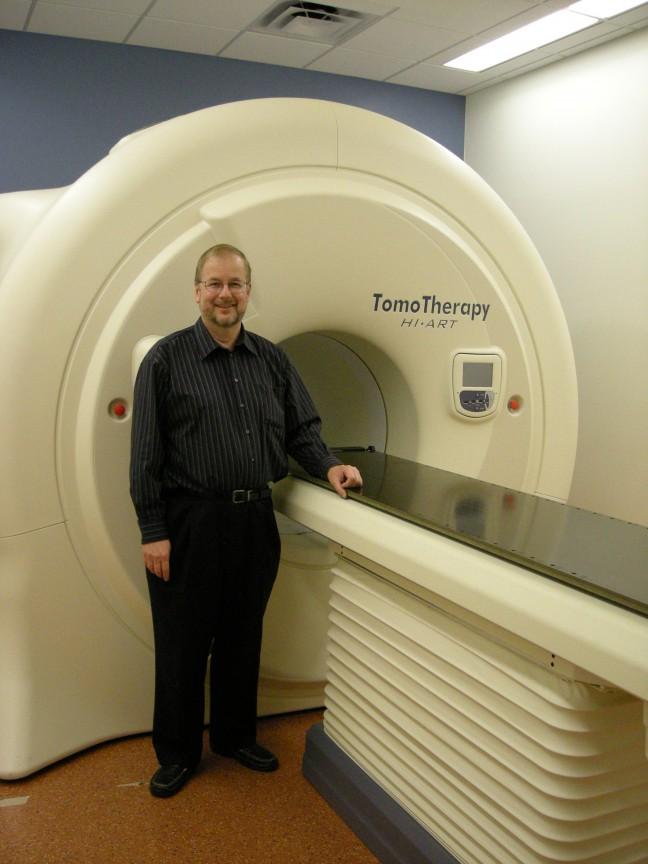Starting with an idea for better radiation therapy in 1988, University of Wisconsin professor emeritus Thomas “Rock” Mackie’s work in the health industry has affected millions of lives.
Working as a technician while earning an undergraduate degree in physics, Mackie said he learned about radiation therapy while measuring radiation levels in people’s homes. After completing his undergraduate education, he decided he wanted follow the path of radiation physics.
“This was during an era of relatively primitive radiation therapy where you didn’t even use a computed tomography scanner to image the patient,” Mackie said. “But I was in it early enough where there wasn’t any treatment planning system.”
So Mackie said he and some colleagues developed a treatment planning system for UW. This was good enough that they were encouraged to commercialize it.
In 1992, Mackie and business partner Paul Reckwerdt founded Geometrics Corporation. Mackie said General Electric funded the corporation, but left the radiation therapy business in 1997, leaving Mackie’s research high and dry.
Then they received funding from the Wisconsin Alumni Research Foundation to keep their project alive.
With the experience of starting one company in Geometrics, Mackie and Reckwerdt started TomoTherapy, and a 14-year journey building a multi-million dollar company.
“We spent so much time in radiation therapy making the beams uniform, and a Swedish investigator said if we could computer plan it, the beams should be specifically tailored to the individual patient,” Mackie said. “Then you can do an even better job. But there was no way to deliver such a machine. So TomoTherapy was all about us asking how we could make a non-uniform beam.”
Focusing on calculating the radiation dose needed to attack tumors with TomoMachines, Mackie said during the early stages of computed tomography, larger margins caused radiation to hit healthy tissue surrounding a tumor. With a more precise beam, TomoTherapy can treat complicated diseases that older CT therapies couldn’t, also avoiding complicating side effects.
For example, in prostate radiation therapy, there are less rectal and bladder side effects. Mackie said if a patient has multiple myeloma, which is a type of bone cancer, TomoTherapy can treat all the bones and spare the sensitive structures like the lungs, thyroid and breasts in women as best as possible.
“The days are over when you build treatment planning systems for use in your own hospital,” Mackie said. “And I don’t think people realize the importance of companies in medicine. They think it’s all about doctors and hospitals, but it’s also about the people that deliver the drugs and the devices.”
With machines in hospitals across the U.S. as well as over thirty countries, Mackie said TomoTherapy was sold to Accuray, a California company, in 2011. But because it was too expensive to manufacture in Silicon Valley, Accuray moved its manufacturing to Madison. He said Madison is a better place to manufacture because it’s centralized and most of the part suppliers are in the Midwest.
Accuray is now selling around $300 million of product per year.
In 2013, Mackie founded HealthMyne, a company he said will join patients medical records together so that they can be provided with better analysis. Recently receiving Federal Drug Administration approval, HealthMyne will launch this fall, and Mackie said he thinks it could have a bigger impact on health than TomoTherapy.
“You just get to meet such great people and wonderful physicians in this field,” Mackie said. “You can’t do anything alone.”


















